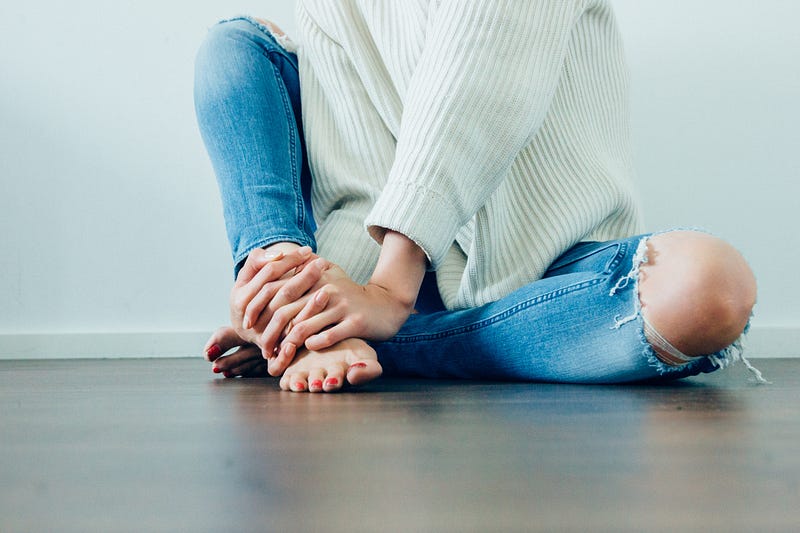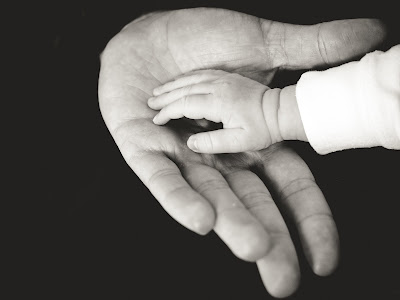Born Vulnerable
“Vulnerability is about showing up and being seen. It’s tough to do that when we’re terrified about what people might see or think.” — Brené Brown
What do you associate with the term vulnerability?
Perhaps it’s weakness, fear, hurt or betrayal.
These are the deep-seated emotions people experience when they reveal aspects of themselves to others.
Let’s be clear. Vulnerability is not a sign of weakness and can be your greatest strength.
“Vulnerability is not winning or losing; it’s having the courage to show up and be seen when we have no control over the outcome. Vulnerability is not weakness; it’s our greatest measure of courage,” affirms research professor and author Brené Brown in Rising Strong.
Vulnerability is a double-edged sword. Those who protect themselves to avoid getting hurt, fail to appreciate intimacy and close relationships.
Everyone is vulnerable, no matter how much they try to avoid it. We are born vulnerable and stay that way for our entire childhood. Our relationship with vulnerability is something we are acquainted with, yet abandon as we merge into adulthood.
Your association with vulnerability requires a shift in awareness in order to strengthen your emotional well-being.
It is no use erecting barricades around you while hoping at the same time others will see the blossoming flower within.
The wall you construct prevents your true nature from being known to others.
It was Rumi who said: “Your task is not to seek for love, but merely to seek and find all the barriers within yourself that you have built against it.”
You must accept your vulnerability if you wish to live a wholesome life. Even the smallest act of letting down your guard is a commitment to your personal growth.
“When we experience a great loss or hurt that feels like ‘broken heartedness’, we now realize that our heart is not broken. It’s actually the heart’s protective shell of defences breaking open to allow us to feel all emotions fully,” writes author Loch Kelly in Shift into Freedom: The Science and Practice of Open-Hearted Awareness.

Your Fractured Parts
“What happens when people open their hearts? They get better.” — Haruki Murakami
Vulnerability is an act of courage because you merge with your authentic self, instead of hiding behind a facade to appease others.
It is within the unknown where your greatest potential lies. Human nature is imperfect, yet the paradox is that we are whole within that sphere of imperfection.
To embrace vulnerability as your greatest strength, you will need to become aware of your pain points. Retaliation leads to suffering, since you are likely to defend your pain like a wounded animal.
Neuropsychologist Mario Martinez writes in his book: The MindBody Code: How to Change the Beliefs that Limit Your Health, Longevity, and Success, “The wound you choose in order to interpret your pain becomes a shield of protection against forgiving, because releasing your grudge means being vulnerable again.”
Vulnerability involves healing your fractured parts by merging with the wholeness of your being.
Consider it akin to a jigsaw puzzle strewn across the floor. Some might say the puzzle is incomplete given the pieces are lying on the floor. However, by gathering them together you create the entire picture piece by piece.
That is the heart of your life story. You have disowned your fractured parts, instead of trying to piece them together.
You are a masterpiece; a Rembrandt replete with perfection. Yet, you focus on your brokenness in the same way as a cracked oil painting when exposed to the elements.
The painting is no less beautiful because of its flaws. It is upon examining it up close that you recognise the defects, while ignoring the complete picture.
“Yes, I am imperfect and vulnerable and sometimes afraid, but that doesn’t change the truth that I am brave and worthy of love and belonging,” affirms Brené Brown.

Heal the Pain
To heal your pain requires undertaking a process of self-examination. You must become curious as to why you react when your pain buttons are triggered.
Every person has pain thresholds. If left unchecked, they become inflamed and dominate your emotional landscape, not to mention your physical health.
The moment you heal the pain, you reintegrate it into the wholeness of your being.
“Make your heart as vast as space, so big that nothing can harm it. When our hearts are that wide, it is as if the judgments are ripples on water, flowing away and leaving no trace. This is what vulnerability makes possible. It allows the natural strength of the heart to emerge,” writes author Mark Coleman in Make Peace with Your Mind: How Mindfulness and Compassion Can Free You from Your Inner Critic.
Suffering ensues when you focus on your sorrow, instead of appreciating the beauty and richness of your complete self.
It is as though you are looking through a magnifying glass on your shattered parts. You give them more attention than they deserve, so others are made aware of your weaknesses too.
Your shadows are one aspect of your character. When healed, you realise the completeness of your being.
Therefore, become a student of vulnerability by taking small risks. This act of self-renewal shines a light on your fractured parts, and is brought to your awareness and seen for what they are; a smokescreen.
“This feeling of rawness is key to working with vulnerability. They often feel like one and the same thing. The challenge is to find a way to be comfortable feeling the innate vulnerability of being human. If we can hold our vulnerability with a loving attention, the painful feelings can unfold and slowly move through us,” affirms author Mark Coleman once more.
Similarly, be wary of the ego and its aversion to being vulnerable. The ego likes to protect its image and vulnerability is a crack in its armour.
It signifies weakness and will do everything to defend itself.
Your greatest triumph will arise when you lean in to your vulnerabilities with openness and compassion.
There is nothing to defend nor protect, for the egoic voice has merely taken command and insisted on protecting you from getting hurt.
I wish to leave you with a passage from Brené Brown’s book Rising Strong in which she writes: “I was reminded that shame is a liar and a story-stealer. I have to trust myself and the people I care about more than the gremlins, even if that means risking being hurt.”
The gremlins she speaks of is the small self preventing your magnificence being known. Trust your heart’s wisdom and its real essence, not the voice in your head.
It is only then you will appreciate how vulnerability is a commanding act of strength and courage.

No comments:
Post a Comment